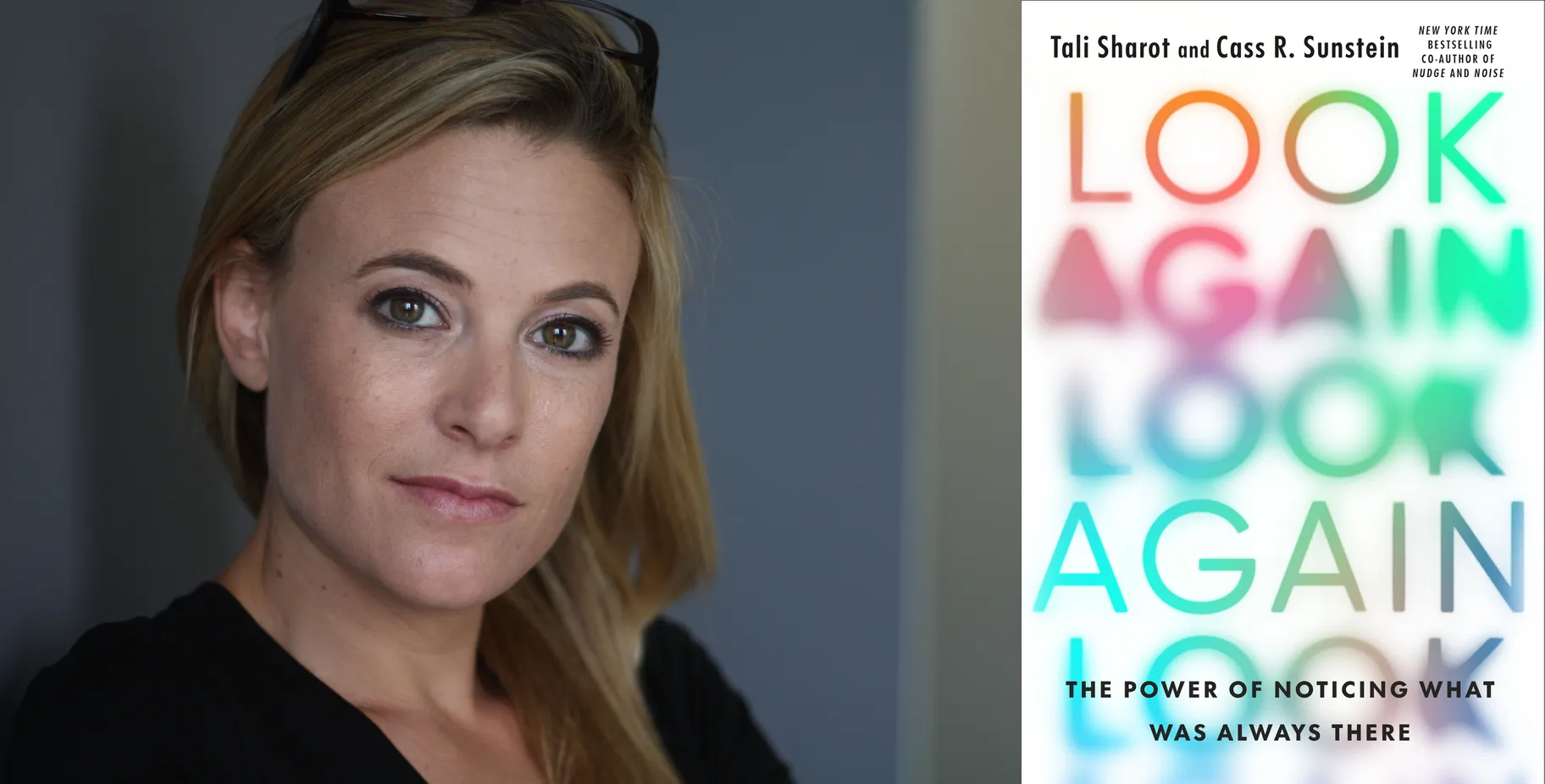When it comes to forming habits, conventional wisdom suggests that there’s also a benefit from “mixing it up” from time to time. Decades of research support this idea, showing that while consistency is important, taking breaks — whether it be from work, school, or an athletic or intellectual challenge — can make life more enjoyable. Couples even report that they are happiest when they do something new together or they greet each other after some time apart.
What makes variety the spice to life, and what's happening in our brains as a result? “When things are not changing around us, we don't have to tend to them and so we don't perceive them, we don’t think about them,” says neuroscientist Tali Sharot. “And if we're not attending, perceiving, not thinking, they're not going to elicit an emotional response as much.”
In Look Again: The Power of Noticing What Was Always There, Sharot, a professor of neuroscience at MIT and University College London, and co-author Cass Sunstein, a Harvard legal scholar, explain why humans tend to habituate — that is, become accustomed to and even normalize their external surroundings and internal behaviors.
Quoting the Hungarian economist Tibor Scitovsky, Sharot expands on the idea that there are perceived benefits when we step away from our routines and comforts. Numerous studies show that people are happiest when experiencing a novelty or a “first.”
“We want more firsts, right? And how do you create more firsts?” she asks. “You break up the joyful experiences into bits. For example, instead of going on a two-week vacation, you might go on a few mini vacations, so you get more of those firsts. You habituate only over a few days, and not over two weeks. If you break up the joyful experiences, you will dis-habituate more and habituate less, and therefore enjoy the whole experience more.”
Citing anecdotes from the actresses Jodie Foster and Julia Roberts, Sharot expands on the value of “re-sparkling” — the ability to “see things afresh” — and how taking breaks in our daily lives can enable us to “see our circumstances, whether it is in the home, in other relationships, or with our children or jobs and so on, with fresh eyes.”
For those who can’t afford to take a break, Sharot cites research from Yale psychologist and happiness expert Laurie Santos, who suggests that closing your eyes and imagining a life without those you love around you can provide similar feelings of joy and gratefulness.
Sharot also talks about the connections between habituation and creativity. “If you just change your environment, take a break and go for a walk, or work in a coffee place, and then come back and work in your office … these things also can enhance creativity, because what they do is to cause you to dishabituate,” she says.
Sharot’s own long collaboration with Sunstein has yielded similar benefits to her creativity. “The best creative and innovative ideas actually come when you're trying to solve a problem in one domain, but you're taking the solution from a totally different domain,” she says. “And that actually reduces habituation.”

In the book, Look Again: The Power of Noticing What Was Always There, co-author Tali Sharot says the research indicates that people tend to report greater satisfaction in life when they have led a “varied life with diverse experiences rather than those who have always done the same thing.” In one study where “people are asked to kind of look back at their life and say, what did they regret? And what they found is that most often the thing that they regretted either doing or not doing, is something that would have enhanced the variety in their life.” “Even if those adjustments are difficult, the challenge gives us a sense of agency, of efficacy,” says Tali Sharot “which actually can lead to a higher sense of well-being, than just doing the same thing over and over and over.” Photo credit Michael Lionstar
Delve deeper into life, philosophy, and what makes us human by joining the Life Examined discussion group on Facebook.
